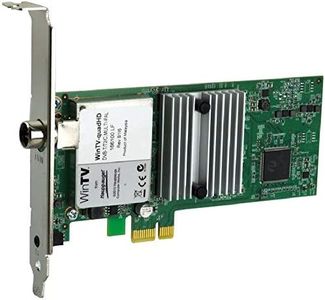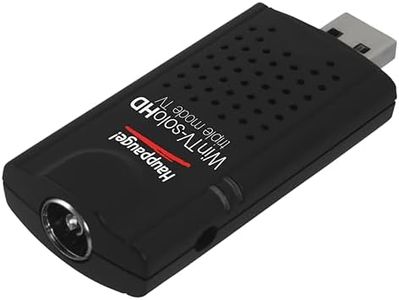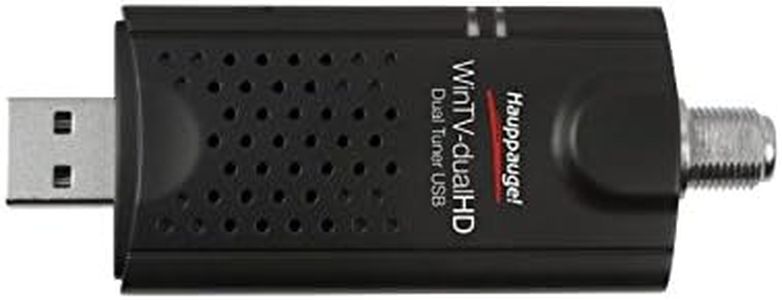We Use CookiesWe use cookies to enhance the security, performance,
functionality and for analytical and promotional activities. By continuing to browse this site you
are agreeing to our privacy policy
4 Best Usb TV Tuners
From leading brands and best sellers available on the web.By clicking on a link to a third party's website, log data is shared with that third party.
Buying Guide for the Best Usb TV Tuners
When considering a USB TV tuner, you're essentially looking for a way to watch or record live television on your computer through a simple plug-and-play device. Since USB TV tuners come in different types and with various features, it’s important to match the device's capabilities with your viewing habits and setup. Understanding key aspects will help ensure you select a tuner that seamlessly fits your entertainment needs and technical comfort.Supported Broadcast StandardsSupported broadcast standards refer to the types of television signals the tuner can receive and decode. Common standards include ATSC (used in North America), DVB-T/T2 (widely used in Europe and elsewhere), and ISDB-T (used in Japan and parts of South America). It's crucial to choose a tuner compatible with the standards used in your country; otherwise, the tuner won't pick up your local channels. If you travel or want international flexibility, look for multi-standard models designed for different continents.
Reception Quality and Signal SensitivityReception quality and signal sensitivity indicate how well the tuner can handle weak or unstable signals and are often shaped by the quality of the tuner and the included antenna. Some tuners work best with strong city signals, while others include better antennas or amplification features for rural or fringe areas. If you’re in an urban location, most basic models suffice; in lower signal areas, look for tuners with amplified antennas or advanced sensitivity features for stable viewing.
Recording and Timeshifting CapabilitiesRecording and timeshifting capabilities let you pause or record live TV to watch later, turning your computer into a makeshift DVR. Some tuners only offer live playback, while others include basic or advanced recording software. If you frequently pause, rewind, or save shows, prioritize models with reliable software for scheduled recordings, pause/resume features, and easy file management. These features are typically necessary for anyone who can’t always watch live TV.
Software Compatibility (Operating System)Software compatibility means the tuner has software drivers and viewing/recording applications that work with your operating system, such as Windows, macOS, or Linux. Not every tuner supports every system, so it’s essential to verify the tuner works with your device. If you mainly use a Windows PC, you’ll have wide choices, while Mac and Linux users need to check for compatible or open-source software support.
Input/Output Connections and PortabilitySince these devices are USB-based, consider the USB version they require (USB 2.0 vs. USB 3.0), as faster ports may allow for smoother performance with high-definition channels. Also, consider the size and portability of the device—slim tuners are convenient for laptops and travel, while larger ones may have extra features for desktop setups. The right choice depends on whether you plan to use your tuner on the go or keep it plugged into a home computer.



